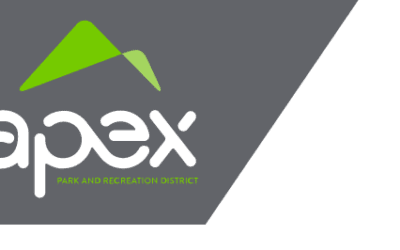
On Friday, February 21, 2020, the Arvada Chamber of Commerce hosted a Community Impact Breakfast to discuss the Colorado public healthcare option. Last session, state lawmakers directed agencies to create a public health insurance option available to all Colorado residents. Industry leaders explained at this event how a public option works and implications for businesses, providers and consumers. The program was sponsored by Lutheran Medical Center | SCL Health.
We want to thank the community and business leaders who presented at this event. Allie Morgan, Director of Legislative Services for the Colorado Health Institute, delivered a keynote presentation with an overview of the public option and why proponents of the bill argue that it is the best solution. Her full PowerPoint presentation can be found here. A panel discussion followed, featuring Grant Wicklund, CEO of Lutheran Medical Center, and Simon Lomax, Policy Adviser to PATH. State representatives did not respond to an invitation to appear on the panel.
Both Wicklund and Lomax agreed healthcare costs are currently too high for Colorado but are concerned the new bill won’t lower costs or increase access. From the hospitals’ perspective, Wicklund is concerned about the bill’s financial burden, saying that government programs like Medicare and Medicaid pay hospitals about 70 cents on the dollar for services. And he says the bill is based on a healthcare system that solves for sickness not social determinants of need. “We need a comprehensive plan that focuses on well-care, not sick-care,” said Wicklund. Lomax issued concern that a plan with price controls and participation requirements of hospitals and insurers may eventually pass costs to other direct and indirect sectors of the economy.
Please find below more resources on the Colorado public option, including arguments for opponents and proponents of the plan, and an updated library of news.
What is the Colorado Public Health Insurance Option?
Much like any other insurance plan you could buy on the individual market, the public option would cover the “essential health benefits,” like hospital stays, prescription drugs, maternity care and mental health treatment. Anyone could opt-in to buying state option coverage, but if employer-sponsored coverage is an option for you, it may be cheaper to stick with your company plan. Despite the name, it’s not state-funded or administrated, and you pay premiums to an insurance company. At first, the plan would only be for Coloradans who purchase health insurance themselves. The state would require private insurers already offering plans on the individual market to offer a state-crafted plan.
A report based on the draft plan expects anywhere from 4,600 to 9,200 people to enroll in a state option in its first year, and that most of them would be uninsured people who are relatively healthy and earn too much to qualify for federal subsidies or people who get insurance on the individual market. The report estimates the plan could lower premiums by 10% to 18% if it limited payments to hospitals to between 175% and 225% of the rate Medicare pays.
Coverage for the plan would start in 2022.
[lgc_column grid=”50″ tablet_grid=”50″ mobile_grid=”100″ last=”false”]
Arguments For
- People who buy their insurance on the individual market could save as much as 11% if the new plan moves forward (source).
- Rural areas would have bigger savings than urban areas, though urban residents would still pay less on average for insurance (source).
- Sponsors of the bill say four concepts will reduce costs: putting limits on what hospitals can charge — Colorado’s hospitals make the second-highest profits in the nation; bumping the amount insurance companies have to spend on patient care from 80% to 85%; passing down rebates from pharmaceutical companies to the consumers; and creating competition, particularly for the 22 counties in the state that only have one option on the individual market.
[/lgc_column]
[lgc_column grid=”50″ tablet_grid=”50″ mobile_grid=”100″ last=”false”]
Arguments Against
- Opponents call the plan a step toward single-payer health care, in which everyone receives insurance coverage paid for with tax dollars.
- The state’s individual health insurance market would lose 80% to 100% of its membership and 1,500 to 4,500 health care workers in Colorado could lose their jobs (source).
- The plan may result in a one-size-fits-all approach replacing market choice and competition that will result in cost increases for the over 50 percent of Coloradans who get health insurance through an employer (source).
[/lgc_column]
Resources
- Draft Report – Colorado’s State Coverage Option (October 7, 2019)
- Final Report – Colorado’s Public Option (November 15, 2019)
- Partnership for Accountability and Transparency in Healthcare
- Colorado Health Institute
- Denver Post – “How will Colorado’s public health insurance option work?”
- Colorado Public Radio – “Colorado’s Public Option Is (The Big) One Of Many Health Care Fights Lawmakers Will Have This Year”
- The Colorado Sun – “Opinion: The public option plan isn’t sustainable for Colorado and jeopardizes access”
- The Colorado Sun – “Opinion: Colorado’s public option should maximize competition and affordability. Here’s how.”
- 9News – “New mailer criticizes public health option Colorado lawmakers will debate in 2020”
- Denver Post – “Primavera: We were naive to trust the health care industry. It’s a mistake lawmakers shouldn’t make again.”
- Denver Business Journal – “Colorado public-option insurance plan could cost health-care jobs, study argues”
- The Hill – “Hospital opposition to state health care reforms foreshadows challenges for Congress”
- Modern Healthcare – “Hospitals lose under public option plan in Colorado”







0 Comments